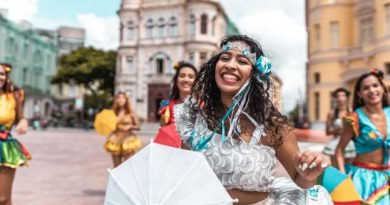Cultural Festivals of the World: Dive into the Diversity of Celebrations Honoring Ancestral Traditions
Around the globe, cultural festivals provide vibrant showcases of heritage, tradition, and community spirit, offering visitors a unique opportunity to immerse themselves in the rich tapestry of global culture. From ancient rituals to modern interpretations, these festivals celebrate the customs, beliefs, and artistic expressions that have shaped societies for generations. Let’s embark on a journey to explore some of the most captivating cultural festivals from around the world, where ancestral traditions are honored and cherished.
1. Diwali, India
Diwali, also known as the Festival of Lights, is one of India’s most significant cultural celebrations, marking the triumph of light over darkness and good over evil. Observed by Hindus, Sikhs, Jains, and Buddhists, Diwali is characterized by colorful decorations, fireworks, and the lighting of oil lamps and candles. Families come together to exchange gifts, share festive meals, and participate in prayers and rituals, creating a joyous atmosphere of unity and renewal.
2. Inti Raymi, Peru
Inti Raymi, or the Festival of the Sun, is an ancient Inca celebration held in honor of the sun god Inti, a central figure in Andean cosmology and agriculture. Taking place on the winter solstice in the Southern Hemisphere, Inti Raymi features elaborate ceremonies, music, and dance performances that pay homage to the sun’s life-giving energy and the fertility of the earth. Held at historic sites such as the ancient Inca capital of Cusco, Inti Raymi offers a fascinating glimpse into Andean culture and spirituality.
3. Carnival, Brazil
Carnival is Brazil’s most famous cultural festival, attracting millions of visitors from around the world to cities like Rio de Janeiro, Salvador, and Recife. Known for its exuberant parades, colorful costumes, and infectious samba music, Carnival is a joyous celebration of Brazilian culture and identity. From elaborate street parties to glamorous masquerade balls, Carnival offers a whirlwind of sights, sounds, and flavors that captivate the senses and ignite the spirit of revelry.
4. Chinese New Year, China
Chinese New Year, also known as the Spring Festival, is the most important traditional holiday in China, marking the beginning of the lunar new year. Celebrated by billions of people around the world, Chinese New Year is characterized by festive decorations, family gatherings, and centuries-old customs and rituals. From dragon and lion dances to fireworks and lantern festivals, Chinese New Year offers a vibrant and lively celebration of Chinese culture and tradition.
5. Day of the Dead, Mexico
Dia de los Muertos, or the Day of the Dead, is a colorful and poignant celebration observed in Mexico and other Latin American countries to honor and remember deceased loved ones. Combining indigenous traditions with Catholic customs, Day of the Dead features elaborate altars adorned with marigolds, candles, and offerings of food and drink. Families gather to visit cemeteries, participate in processions, and share stories and memories of the departed, creating a festive atmosphere of remembrance and reverence.
Conclusion
Cultural festivals from around the world offer a kaleidoscope of sights, sounds, and experiences that celebrate the diversity and richness of human heritage. From the sacred rituals of Diwali in India to the exuberant parades of Carnival in Brazil, these festivals provide an opportunity for people to come together, connect with their roots, and celebrate the traditions that unite us as a global community. So, pack your bags and immerse yourself in the magic of these cultural celebrations on your next adventure around the world.




